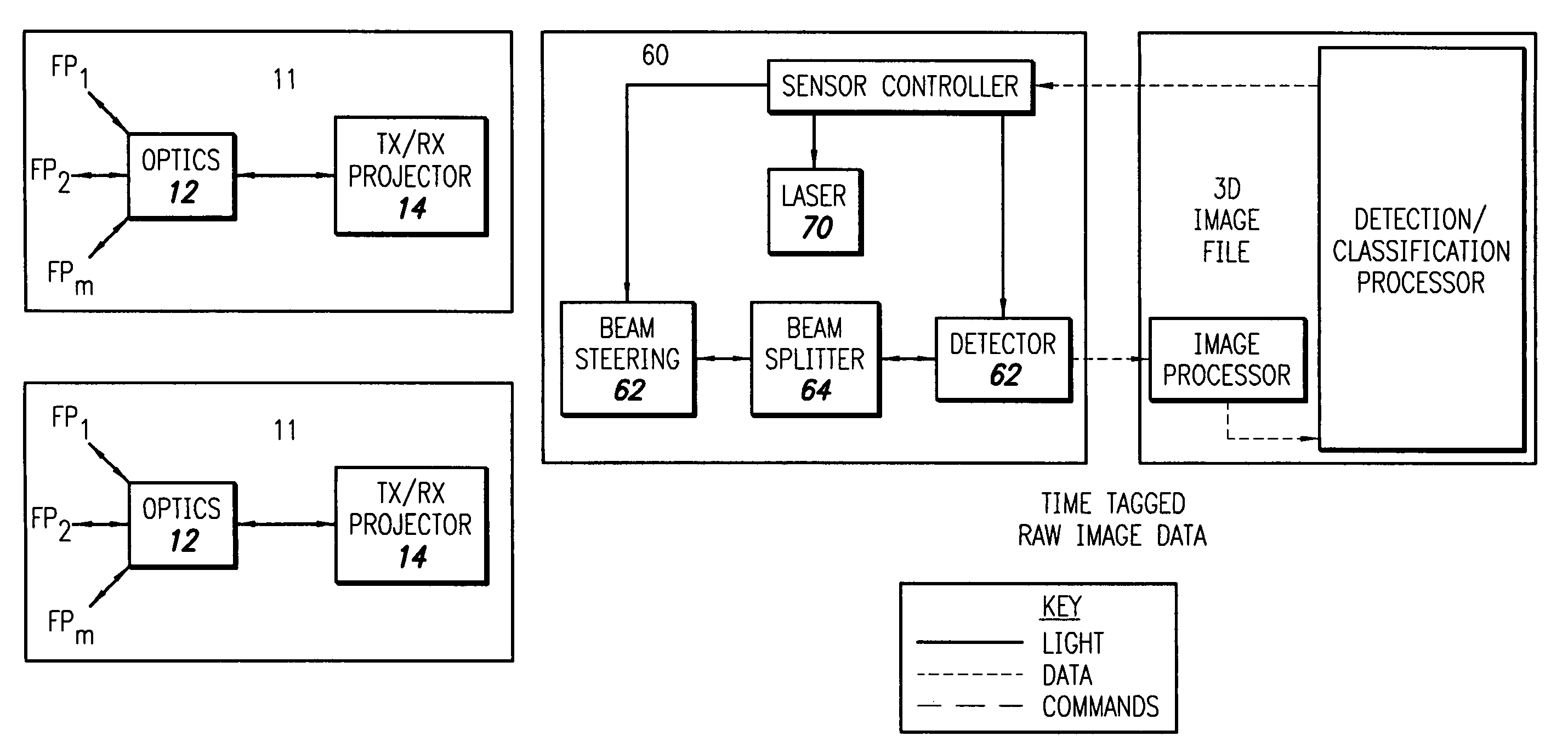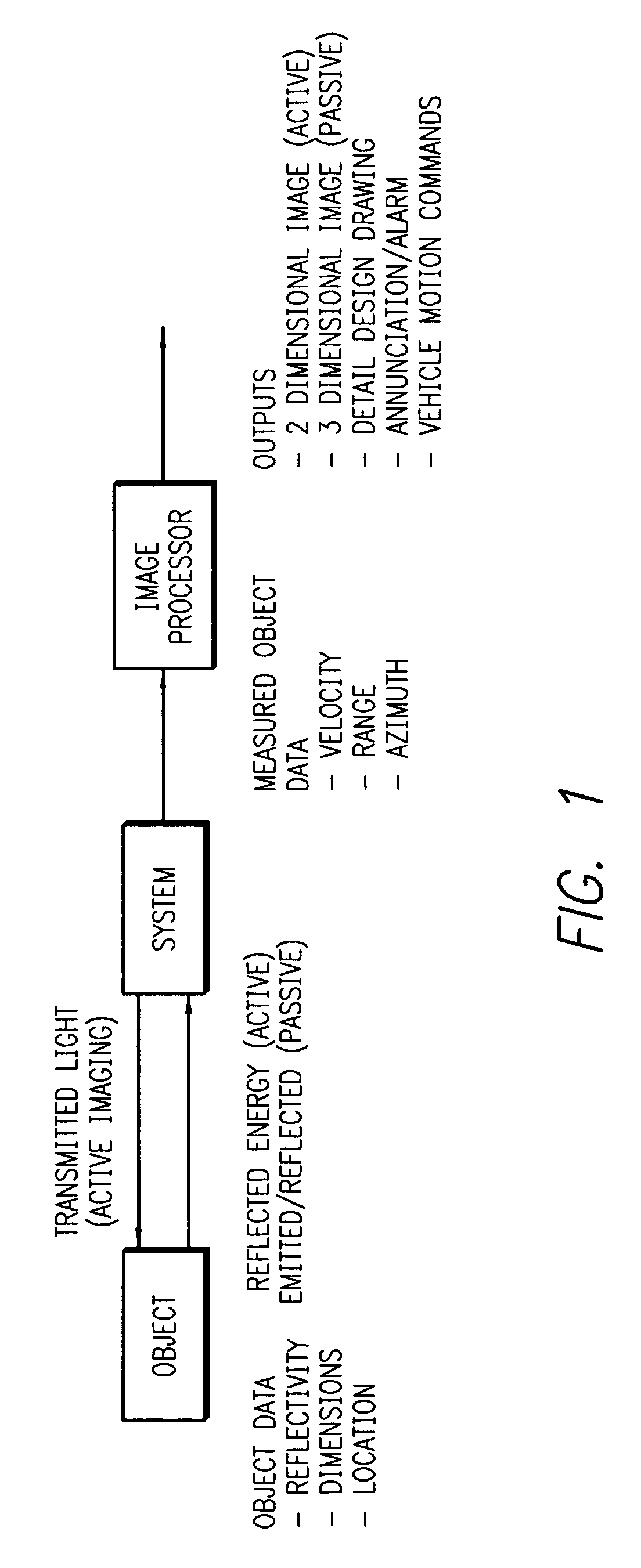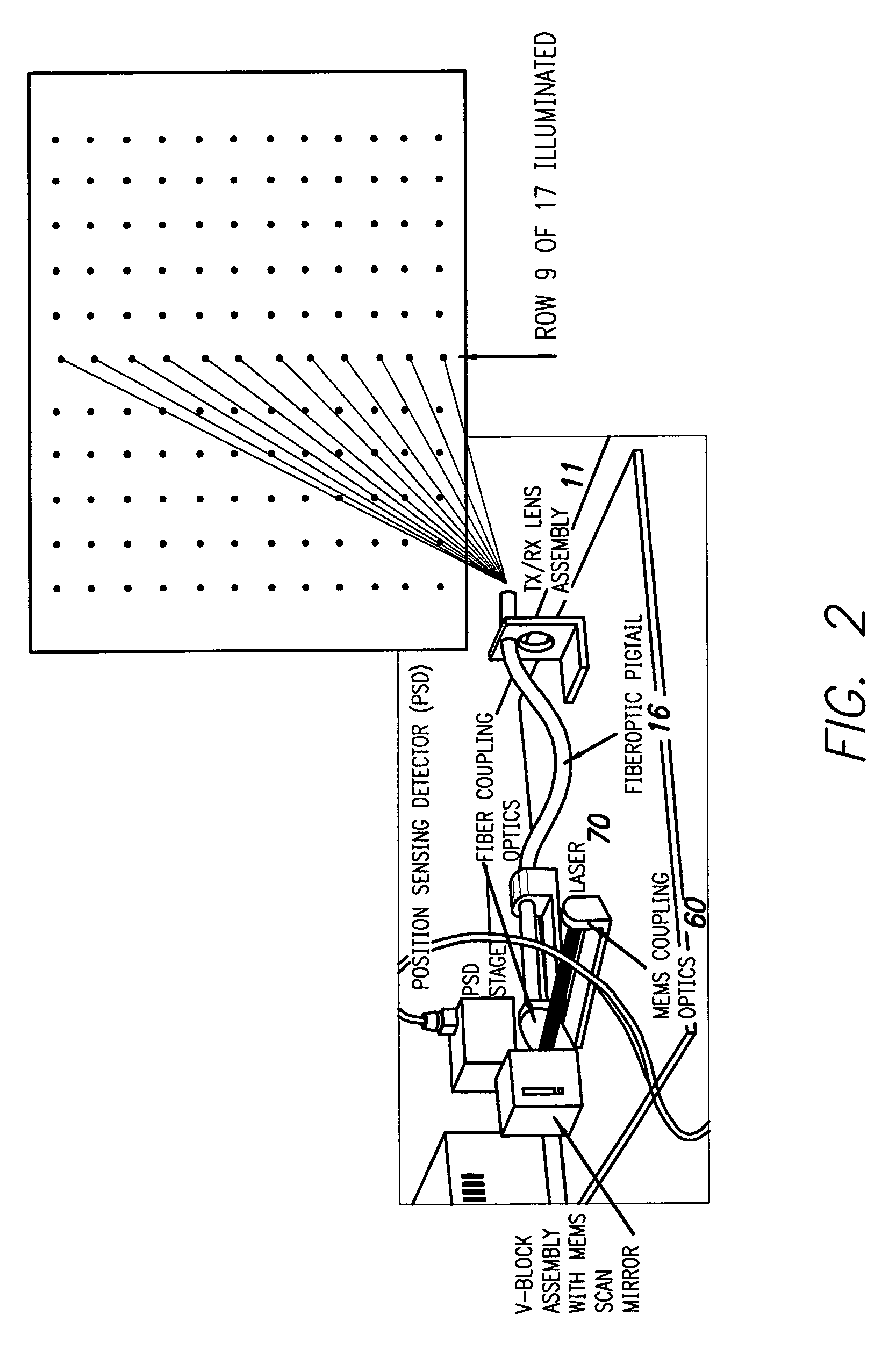Micromechanical and related lidar apparatus and method, and fast light-routing components
a lidar apparatus and micromechanical technology, applied in the direction of reradiation, distance measurement, instruments, etc., can solve the problems of low switching speed, large operational inconvenience and expense, and the technique too is relatively slow for switching
- Summary
- Abstract
- Description
- Claims
- Application Information
AI Technical Summary
Benefits of technology
Problems solved by technology
Method used
Image
Examples
Embodiment Construction
Applications
[0157]In particularly preferred applications and embodiments, the invention is used as an optical system, or as part of an optical system, for detection and ranging as well as imaging (FIG. 1). The imaging applications can be active or passive depending on the result desired.
[0158]In active imaging, a source is used to illuminate an object of interest. Passive imaging instead collects illumination emitted from the object, or reflected from the environment, to form an image of an object of interest.
[0159]These imaging applications are applied to many fields including but not limited to industrial automation, aerospace, industrial inspection, intelligence, and reverse engineering (i. e. regeneration of detailed engineering designs from already-built hardware) as well as guidance and control (FIG. 1). The last-mentioned field includes applications such as collision avoidance, object interception and vehicle rendezvous. In these applications, measured values for location and...
PUM
 Login to View More
Login to View More Abstract
Description
Claims
Application Information
 Login to View More
Login to View More - R&D
- Intellectual Property
- Life Sciences
- Materials
- Tech Scout
- Unparalleled Data Quality
- Higher Quality Content
- 60% Fewer Hallucinations
Browse by: Latest US Patents, China's latest patents, Technical Efficacy Thesaurus, Application Domain, Technology Topic, Popular Technical Reports.
© 2025 PatSnap. All rights reserved.Legal|Privacy policy|Modern Slavery Act Transparency Statement|Sitemap|About US| Contact US: help@patsnap.com



